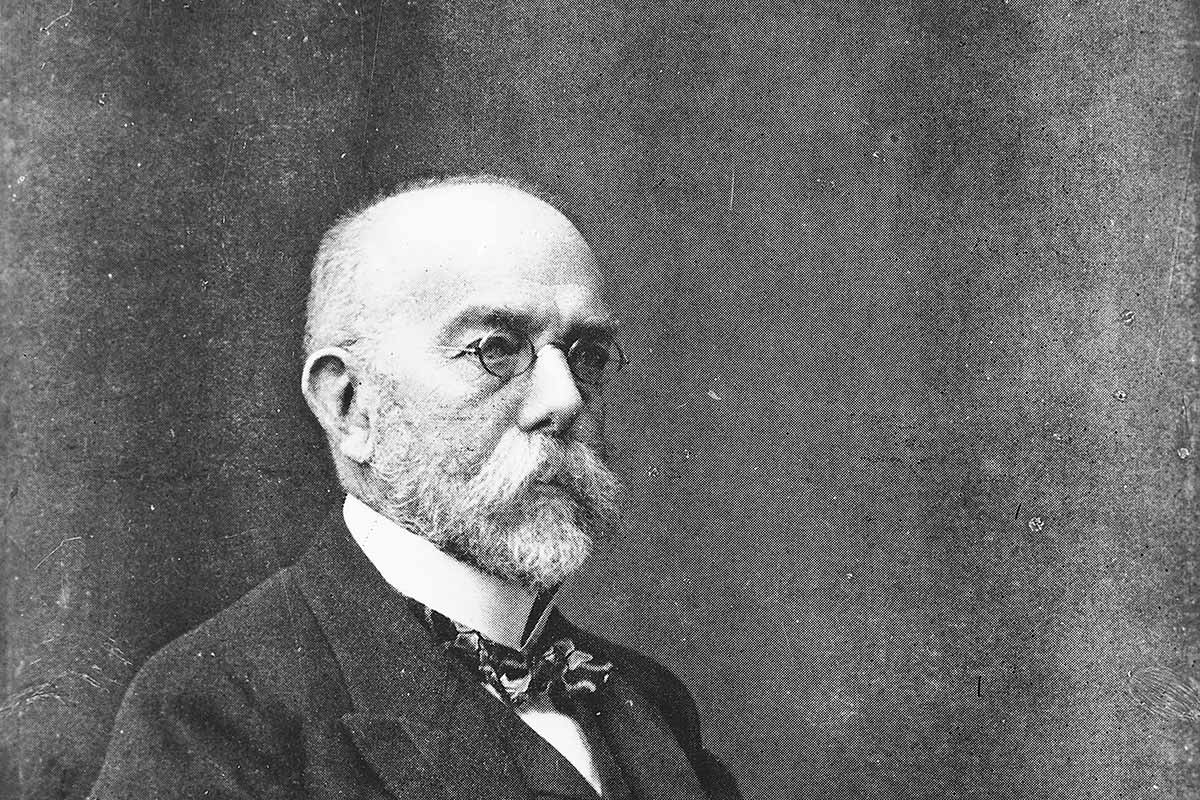Heinrich Hermann Robert Koch was a German physician. He is one of the founders of microbiology, and was awarded the Nobel Prize in Physiology or Medicine.
Early life
Koch was born on December 11, 1843 in Clausthal, which was then part of Prussia. He was one of thirteen childern born to a mining engineer and his wife. His father suggested that Koch learns the shoemaker’s trade, however that was not the road he wanted to follow.
Education
Robert Koch taught himself to read and write before entering the primary school in 1848. He transferred to the Klausthal Gymnasium in 1851, and graduated in 1862. He had a very good standing in classes such as mathematics, physics, geography, German and English. He started studying medicine and natural science at the age of 19, at the University of Gottingen. Koch graduated from university in 1866.
Achievements
Koch was interested in the direct transmission of the anthrax bacillus between cows. He invented methods to purify the bacillus from blood samples and grow pure cultures. He found that anthrax built persisting endospores that could last a long time, and they were the cause of unexplained outbreaks of anthrax. Koch published his findings in 1876, and received a job at the Imperial Health Office in Berlin in 1880.
In 1882 Koch was able to discover the bacterium causing tuberculosis. He announced the discovery on March 24, 1882. At that time tuberculosis was the cause of one in seven deaths.
In 1883, Koch he went to Alenadria, Egypt with a research team to study cholera. Koch identified the vibrio bacterium that caused cholera, but could not prove it in experiments.
In 1890 Koch published the “Four Postulates” on which modern bacteriological studies have been built. These postulates are:
– The organism must be present in every case of the disease.
– The organism must be cultivated in a pure culture.
– The organism must produce the disease in a susceptible animal upon inoculation.
– The organism must produce the same disease when healthy animals are inoculated.
Later life
Five years before his death (1905) he was awarded a Nobel Prize for Physiology or Medicine, for his previous achievements. Robert Koch died on May 27, 1910 from a cardiac arrest. He was 66 years old.
Robert Koch quotes
“If my efforts have led to greater success than usual, this is due, I believe, to the fact that during my wanderings in the field of medicine, I have strayed onto paths where the gold was still lying by the wayside. It takes a little luck to be able to distinguish gold from dross, but that is all.”
“I am not a supporter of the exclusive drinking-water theory. I think that the ways in which cholera can spread in a place are extremely diverse, and…almost every place has its own peculiar conditions…”
“The pure culture is the foundation for all research on infectious disease.”

